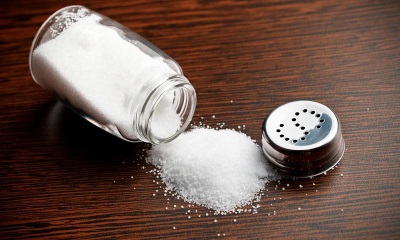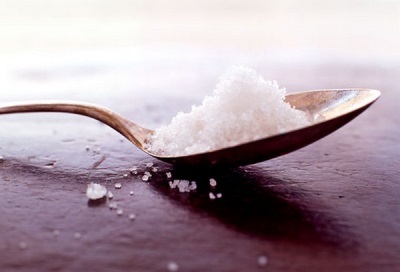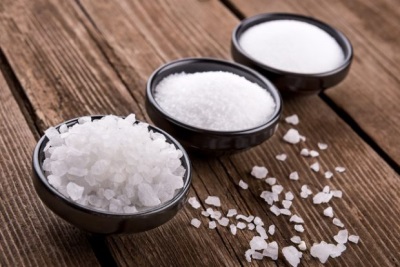At what age can you give the child salt?
Attitude to such the most common seasoning in the world, like salt, is ambiguous. It is vital for the human body and at the same time can cause various disruptions in its functioning. But is salt good for children, is it permissible to include it in the diet of infants, and why it should not be given too early?
Benefit
In the composition of table salt, sodium is the main element, which is combined with chlorine. Without sodium, many physiological processes cannot take place in the body of a child. In particular, this element is important for nervous tissue and muscle work. The main function of chlorine coming in with the salt is to produce hydrochloric acid.
In addition, including salt in the diet of baby food, it will be useful:
- For the regulation of water-salt balance. This property of salt is used in dehydration, including it in rehydration solutions.
- For metabolic processes in cells, during which nutrients enter the tissues, and the decay products are removed.
- For the functioning of the pancreas and digestive tract.
Harm
The negative effect of sodium chloride is mainly due to excessive salt intake.
A lot of such seasoning is contraindicated in children, because salt will be:
- Retaining water in the tissues, which causes swelling, and the load on the excretory system increases.
- Increase blood pressure, harder heart work.
- Influencing calcium metabolism, resulting in brittle bones and teeth deteriorate.
- To provoke thirst and increase appetite, which leads to overeating.
- It has a stimulating effect on the nervous system, which is manifested by irritability, restless behavior and nervousness.
At what age can you add some food to your children?
Infants of the first six months of life receive salt from human milk or from a mixture. In these two products, the content of chlorine and sodium is balanced and represented by the concentration that does not harm the kids. In cow's milk, the salt content is several times higher, so it is not recommended as a substitute for mother's milk for babies under one year old.
When the crumb begins to try complementary foods, each mother has a question - is it necessary to salt the food for the daughter or son? Pediatricians are not advised to add salt to children's meals until at least 9 months of age.
It is even better if the parents do not salt the food for the child under 1 year. Crumbs will be quite enough salt from vegetables, kefir, meat, cereals and other products that are introduced into the supplements. In addition, infant babies do not protest against fresh food until they try salty foods. And mom should allow the crumbs to get acquainted with the natural taste of products.

Opinion of Dr. Komarovsky
The famous pediatrician stresses that every baby needs salt, especially if the child is sweating, losing sodium chloride with sweat. However, Komarovsky emphasizes that the needs of babies in salt are much lower than in adults.A popular doctor advises mothers to use their own taste when adding salt in food for children - the dish should be slightly under-salted, but not fresh.
A short commentary by the doctor about salt in the baby’s diet, see the video below.
How much salt does a baby need?
Children under the age of 9-10 months should be given no more than 0.2 g of salt per day. Since this amount of seasoning kids get from food, it is recommended to not add salt to food.
The amount of salt for babies older than 10-12 months is 0.35 g per day. - In soups, cereals, vegetables, meat and other dishes are advised to add only a few crystals of salt. For children older than a year, it is permissible to increase the daily dose of salt to 0.5-1 g, and from the age of 3, the amount of such seasoning can be gradually increased to 4-5 g per day.
What salt to give the child?
In the diet of a child older than a year can be added:
- Rock salt. It is a grayish crystals, which include not only sodium and chlorine, but also other minerals (selenium, iodine, zinc, potassium). Such salt is added to dishes for the child after heat treatment.
- Refined salt. Such seasoning has a fine grinding and a white shade. It contains only sodium chloride.
- Iodized salt. This seasoning is additionally enriched with iodine, and its grinding can be different - both very fine and large. It is advised to give it to children living in areas where the soil is poor in iodine.
- Sea salt. To obtain it evaporated sea water. As a result, crystals rich in iodine, calcium, magnesium, iron and potassium are formed. Due to the high concentration of minerals, such salt is not recommended to be given until 5 years of age.
- Hypo sodium salt. Its feature is a reduced amount of sodium. Such seasoning child prescribed only by a doctor.
About the unexpected dangers of salt intake, see “Live Healthy”.































































